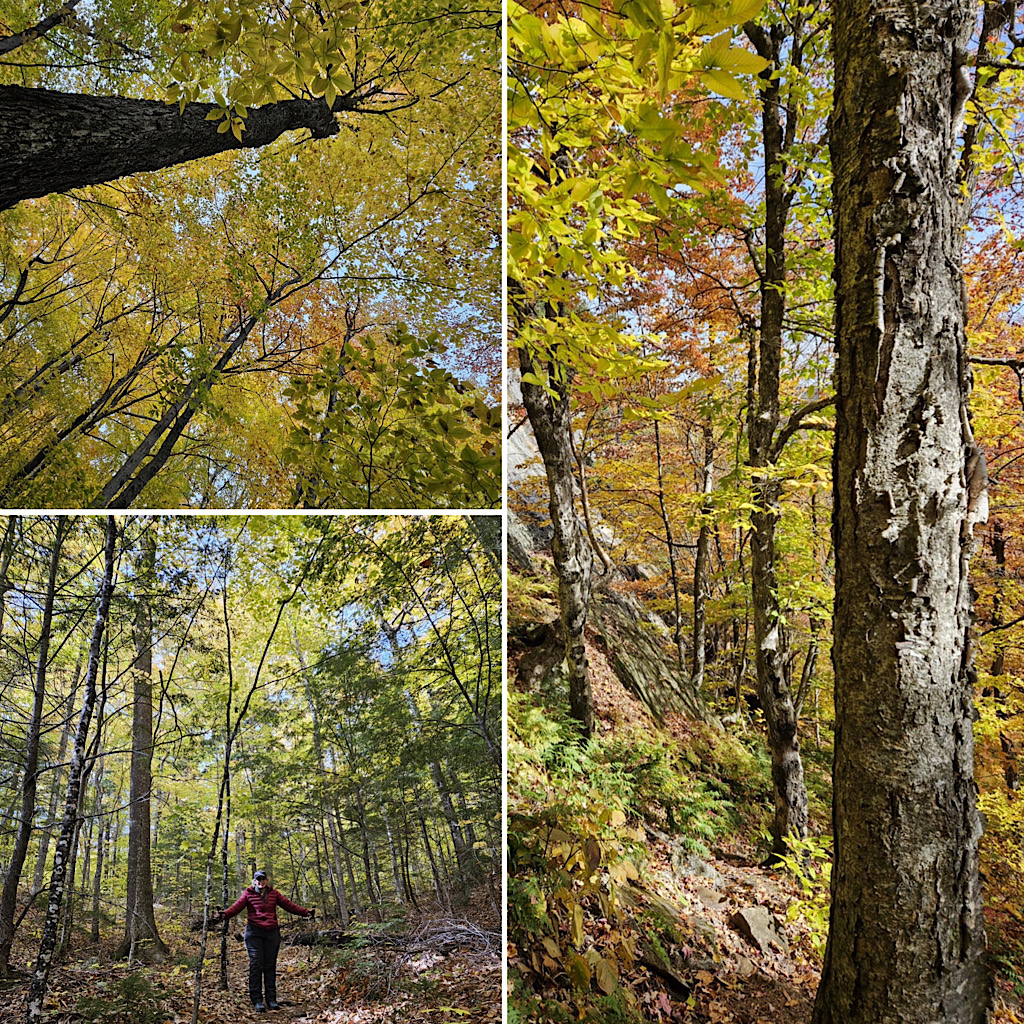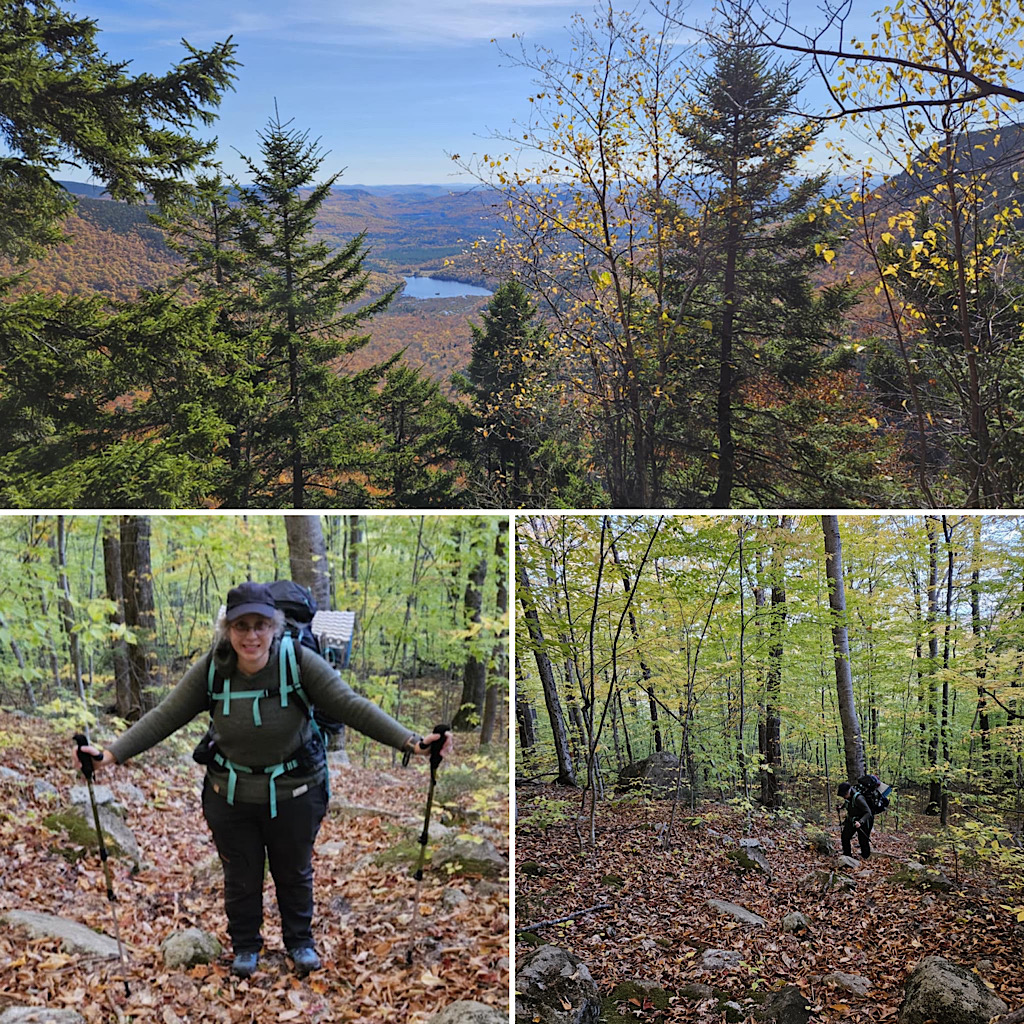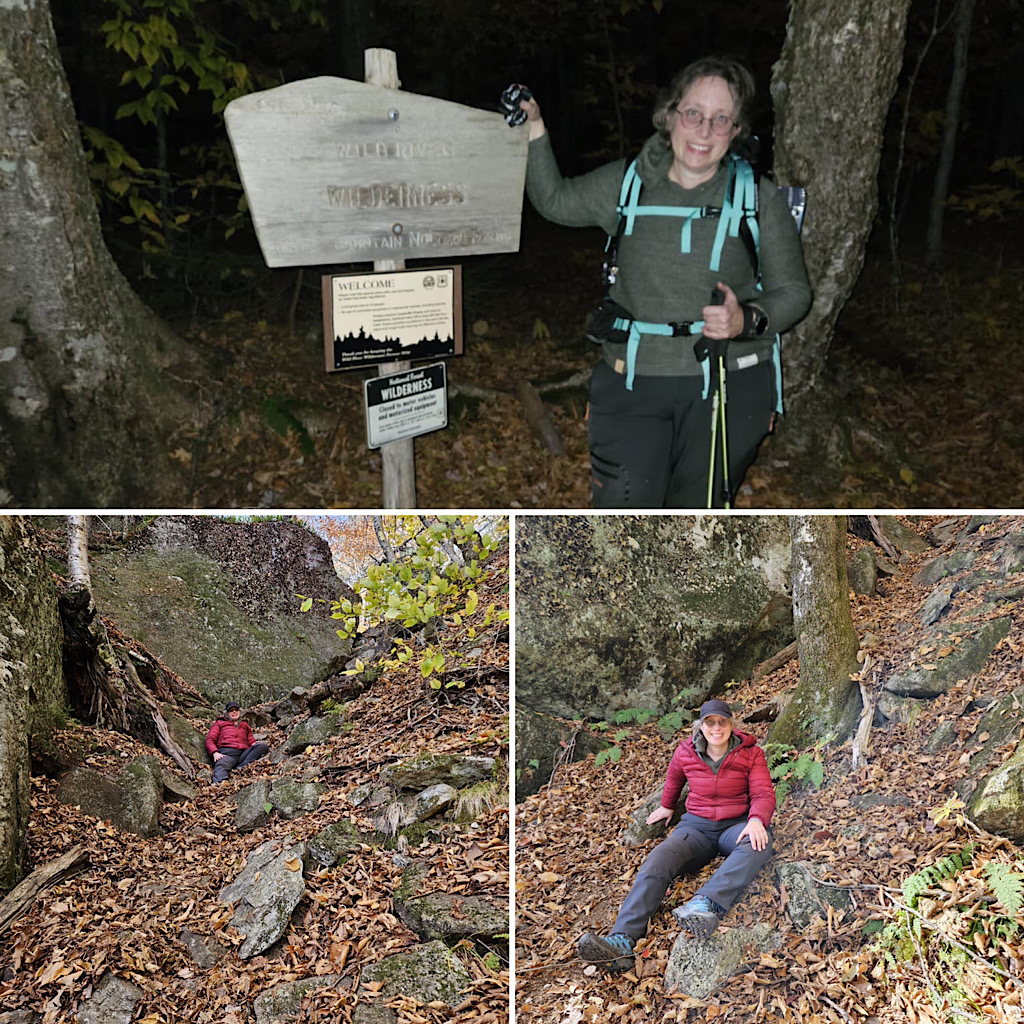A woman from southeast Pennsylvania came to us to join a group introductory backpacking weekend. Unfortunately the group didn’t materialize. Life. But the show must go on, as they say. So, with this individual, Redline Guide Debra McCown led the way to a pretty site in the Wild River Wilderness. Group or no, they had a great time enjoying fantastic fall weather. And that could be the beginning, middle, and end of this story, but it’s not. There’s so much more to tell. The title of this post and the content that follows, furnished by Debra, fills in the gaps.
Six years ago she was using a cane and was told by a doctor that she wouldn’t walk normally again. This weekend, while carrying a 22-pound backpack, she climbed 1,400 vertical feet of rocky trail up a mountain; a feat she wasn’t entirely sure she was capable of.
This one-night backpacking trip had an interesting evolution for our guest who had originally signed up for the trip as a group intro backpacking event — but, due to a last-minute cancellation, she ended up being the only participant. And since she was alone, we began at her preferred later start time. After a brief discussion in a trailhead parking lot, we decided to hike a harder trail than originally planned. Instead of 600ish feet of steady elevation gain over 2.3 miles, this one was around 1,400 feet of elevation gain over 2.8 miles — including a couple hundred yards of Class 2 scrambling at the top.
This hike took a bit longer, and while she expressed insistent determination to complete it, she also thought in hindsight that perhaps she would’ve preferred the less physically demanding challenge. It turned out she didn’t know exactly what those close-together topo lines meant on the map until she experienced them.
‘This is not something I would do,’ she said, as she dug deep to push herself up the last, steep 150 feet of elevation gain. ‘Not on purpose,’ she added. But once the trip was under way, she was determined to finish what she started. It was also a good test trail for a potential goal she’d been thinking about: section-hiking on the Appalachian Trail, which has a lot of similar terrain.
The hike was tough enough to make her think hard about that goal — and also about the need to train seriously for a hike she has planned in Europe next year. She said she felt like she learned a lot from the other aspects of her first backpacking trip as an adult — from how to pack a backpack well, to the finer points of setting up a tent to stay dry in the rain, to the simple logistics of cooking, food storage, using the bathroom, and filtering water in camp. Those skills were a big part of what she came for. She also got to try some things she wasn’t sure of, like hiking a short distance in the dark with a headlamp, which she found was easier than expected.
We talked about how backpacking can also be enjoyed in a less physically demanding way — and that hiking a mile into the woods on level ground to a developed campsite absolutely counts! Difficult hiking is not required to have a good adventure.
Before someday section hiking the AT, as she has a more immediately planned trip to Europe for next year as mentioned, and she asked about how to prepare. I suggested that the best way to train for hiking up hills is to hike up hills, consistently. Even if, to fit them in, she just hiked some laps on steep pavement close to home. I noted that, after a year of training and successful completion of her planned hut-to-hut hike in the Alps, she might return to this trail we hiked and find it easy.
While this weekend trip inspired a variety of conflicting emotions, in the end she said she was glad she came. I think it’s likely that the same admirable grit and determination that drove her to overcome a disabling injury and other health issues — and a trail she thought might be beyond her capabilities — will get her where she wants to be for her big hike in 2025. —Debra
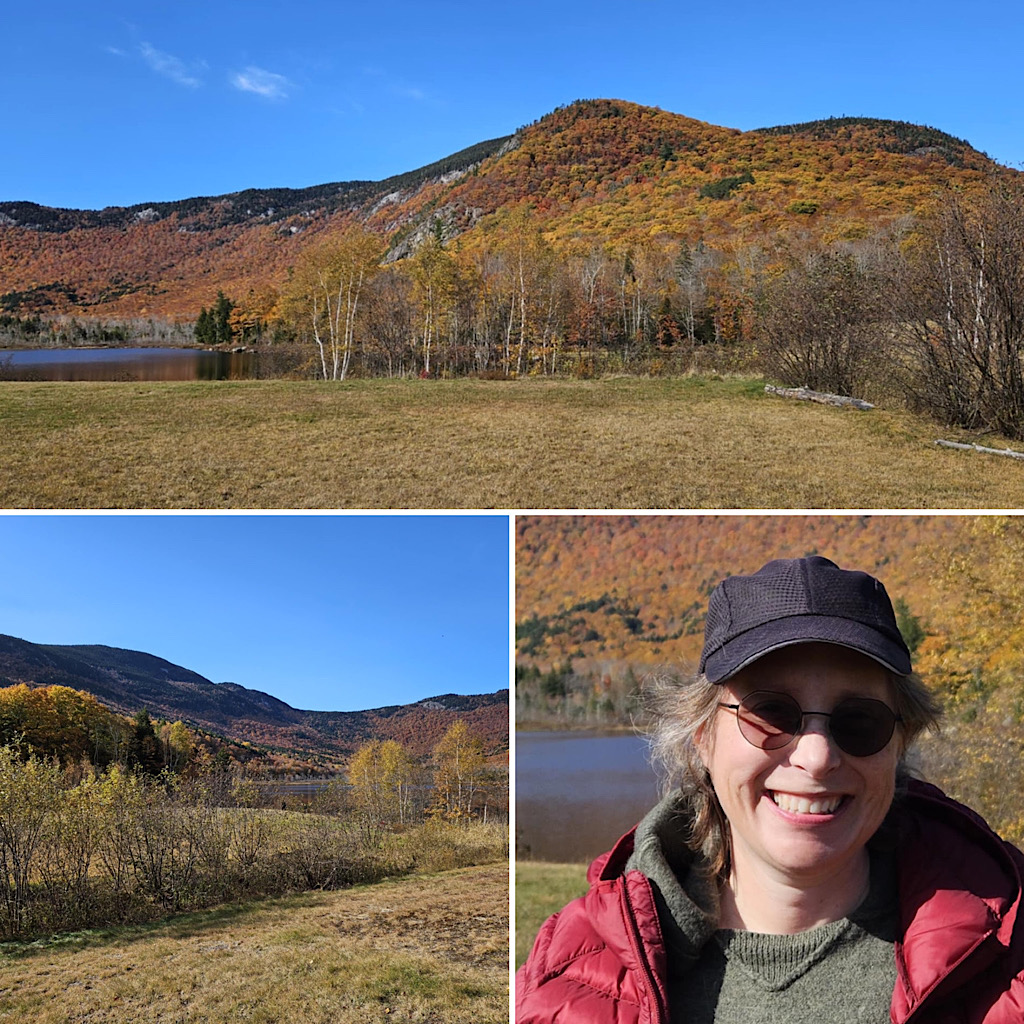
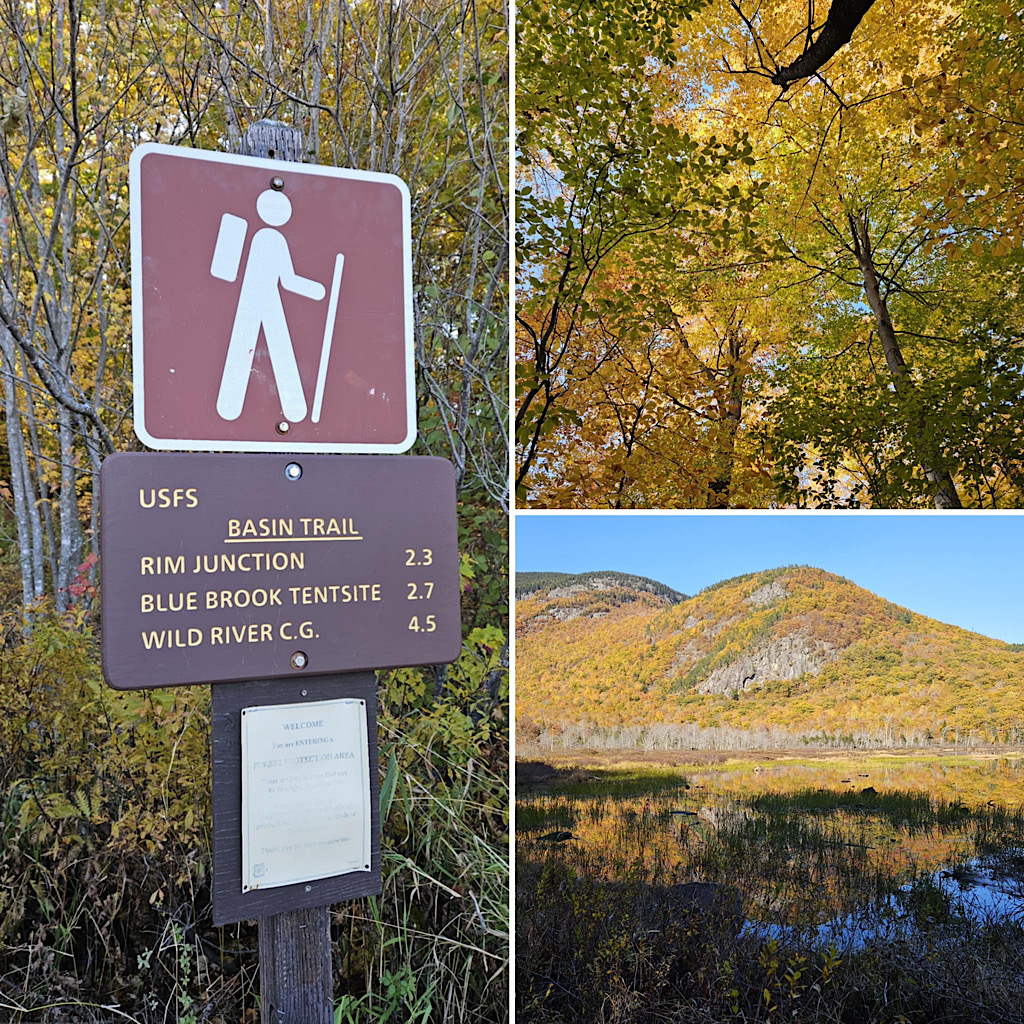
The amazing colors of autumn are… wild!
